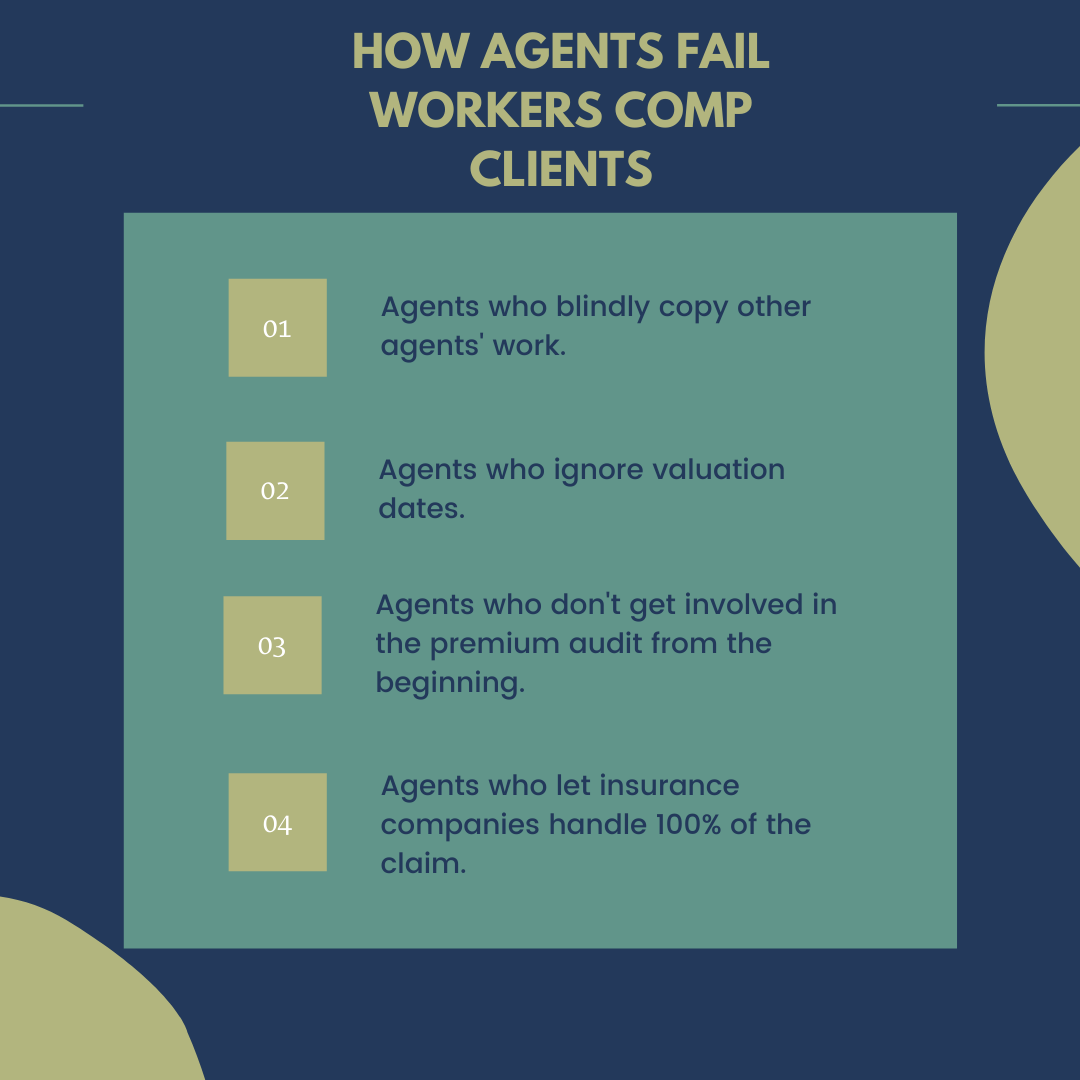Several Ways Agents Fail Their Workers Comp Customers
Any one of these possibilities can cost customers money including increasing their workers' compensation costs.
1. Agents who blindly copy other agents' work. Think of it as taking over as a basketball coach and doing nothing more then copying the coach's lineup. Maybe the guy playing small forward should really be the point guard. This happens when an agent gets a new commercial account and does little more than copy the workers' comp employee classifications the previous agent used. There are more than 600 classifications used by the National Council of Compensation Insurers (NCCI). Many of them cover similar but not identical operations. The rules about who is covered by these classifications are commonly misunderstood, as in a recent situation where employees of a steel retailer were misclassified because they also did some painting of the metal they sold. The painting classification was far more expensive and the classification should never have been used.
So right from the start, the agent is failing a client, through nothing more really than sheer laziness. Take time to walk the site to make sure you are familiar with the operation, what they do, and who does it.
2. Agents who ignore valuation dates. Eighteen months after a workers' comp policy's inception date, the insurance company takes a snapshot of the current status of all claims, including what has been paid and also the money that the insurance company expects to pay. But those numbers may not be correct. Maybe the reserves are too high because they thought an injured employee was going to need $50,000 for surgery, but only required $10,000 of physical therapy. Maybe another employee was deemed by a doctor eligible to return to work, but the adjuster never got this information.
Agents should take advantage of their agency management system to keep track of upcoming valuation dates and to speak with the adjuster at least 60-90 days before the date to better understand all the facts and figures. Otherwise, once the date has past, the window has closed and the client will have to suffer the overcharge for a full year.
3. Agents who don't get involved in the premium audit from the beginning. When agents don't get involved in helping clients with their premium audits until after the fact, there can be a problem when the client receives an unexpected bill.
But by then it's like trying to put toothpaste back in the tube. It's important that your agent is proactive and more involved in the process before the auditor shows up. By doing so, they can educate you the client prior to the audit on such items as what money they give employees that applies to workers' compensation and what money doesn't.
Today, as workers' comp rates decline and payrolls have thinned out, employers are likely to receive a check in the mail for a workers' compensation rebate instead of a bill. Since it's a check, they aren't asking the agent about it. By not having that conversation, the agent is denied the opportunity to determine if the employer qualifies for additional funds. Is your agent proactive?
4. Agents who let insurance companies handle 100% of the claims. When a worker is injured on the job, most employers automatically call the insurance company. Makes sense since the agent isn't the one who cuts the checks. But in truth, the agent should be involved when there is an injury to monitor the process. By doing so, the agent can stay updated on all communication between the medical staff and the employer and the adjuster, find out when the injured party can return to work, make sure there is a plan in place for that to happen, and generally keep the flow of communication moving between the doctors, the human resources department and insurance company.
By not getting involved, the agent is pushing all the responsibility to the insurance company, a third party that the employer has no direct relationship with. You are the customer of the agent, which means the agent should be involved with anything that goes on in your business. That is what the agent gets paid for, right?
What employer would not appreciate an agent's participation in the process? What employer would not want another set of trained eyes keeping track of claims?
It's an expense to have an employee off the job when it isn't necessary. Helping to facilitate getting an injured employee back to work as quickly as possible can only benefit you the client.
For any help on controlling your Total Cost of Risk or any questions in general, please contact Sean Leigh

